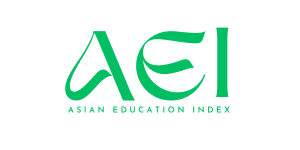Study Of Social And Pedagogical Factors In International Evaluation Research
DOI:
https://doi.org/10.62480/zjssh.2025.vol40.pp42-45Keywords:
international assessment research, pedagogical research, familyAbstract
In the countries participating in the international evaluation studies, the issue of researching the success of students in education is given wide attention. The success of students in education depends on such factors as the educational process, educational programs, methods, educational literature in secondary schools. Also, the proof that socio-pedagogical factors, such as the students' family conditions, the educational environment in their families, and their parents' attitude towards education are of decisive importance, is reflected in scientific research
References
Burns, J.: The Correlational Relationship between Homeschooling Demographics and High
Test Scores. Manuskript 1999, http://searcheric.org/ericdc/ED439141.htm
Coleman, James S. "Equality of educational opportunity." Integrated education 6.5, 1968. -
p.19-28.
Eric Development Team: Homeschooling. ERIC Digest ED457539, 2001,
http://searcheric.org/ericdc/ED457539.htm
Fraser, B.J. et al.: Syntheses of Educational Productivity Research. International Journal of
Educational Research 11,1987. -p. 147-251
Krumm, V. Schulleistung – auch eine Leistung der Eltern. Die heimliche und die offene
Zusammenarbeit von Eltern und Lehrern und wie sie verbessert werden kann. In: Specht,
W./Thonhauser, J. (Hrsg.): Schulqualität. Innsbruck, 1995. -p. 256-290
Krumm, V.: Über die Vernachlässigung der Eltern durch Lehrer und Erziehungswissenschaft
– Plädoyer für eine veränderte Rolle der Lehrer bei der Erziehung der Kinder. Zeitschrift für
Pädagogik Sonderheft 34, 1996. -p. 119-140
Maaz, K. Bildung in Deutschland 2022. Ein indikatorengestützter Bericht mit einer
Analysezum Bildungspersonal. Media GmbH & Co. KG, Bielefeld 2022
National Center for Educational Statistics: 1.1 Million Homeschooled Students in the United
States in 2003. Issue Brief NCES 2004-115, 2004
Plowden, B. (Hrsg.): Children and Their Primary Schools. London, 1967
Textor, M.R. Die Bildungsfunktion der Familie stärken: Neue Aufgabe der
Familienbildung, Kindergärten und Schulen? Nachrichtendienst des Deutschen Vereins für
öffentliche und private Fürsorge 85 (5), 2005, - p. 155-159
Tietze, W./Roßbach, H.-G./Grenner, K.: Kinder von 4 bis 8 Jahren. Zur Qualität der
Erziehung und Bildung in Kindergarten, Grundschule und Familie. Weinheim ,2005.
Zimmermann, P., Spangler, G. Jenseits des Klassenzimmers. Der Einfluss der Familie
auf Intelligenz, Motivation, Emotion und Leistung im Kontext der Schule Zeitschrift für
Pädagogik 47, 2001. - p. 461-479
Downloads
Published
Issue
Section
License

This work is licensed under a Creative Commons Attribution-NonCommercial 4.0 International License.
User Rights
Under the Creative Commons Attribution-NonCommercial 4.0 International (CC-BY-NC), the author (s) and users are free to share (copy, distribute and transmit the contribution).
Rights of Authors
Authors retain the following rights:
1. Copyright and other proprietary rights relating to the article, such as patent rights,
2. the right to use the substance of the article in future works, including lectures and books,
3. the right to reproduce the article for own purposes, provided the copies are not offered for sale,
4. the right to self-archive the article.














